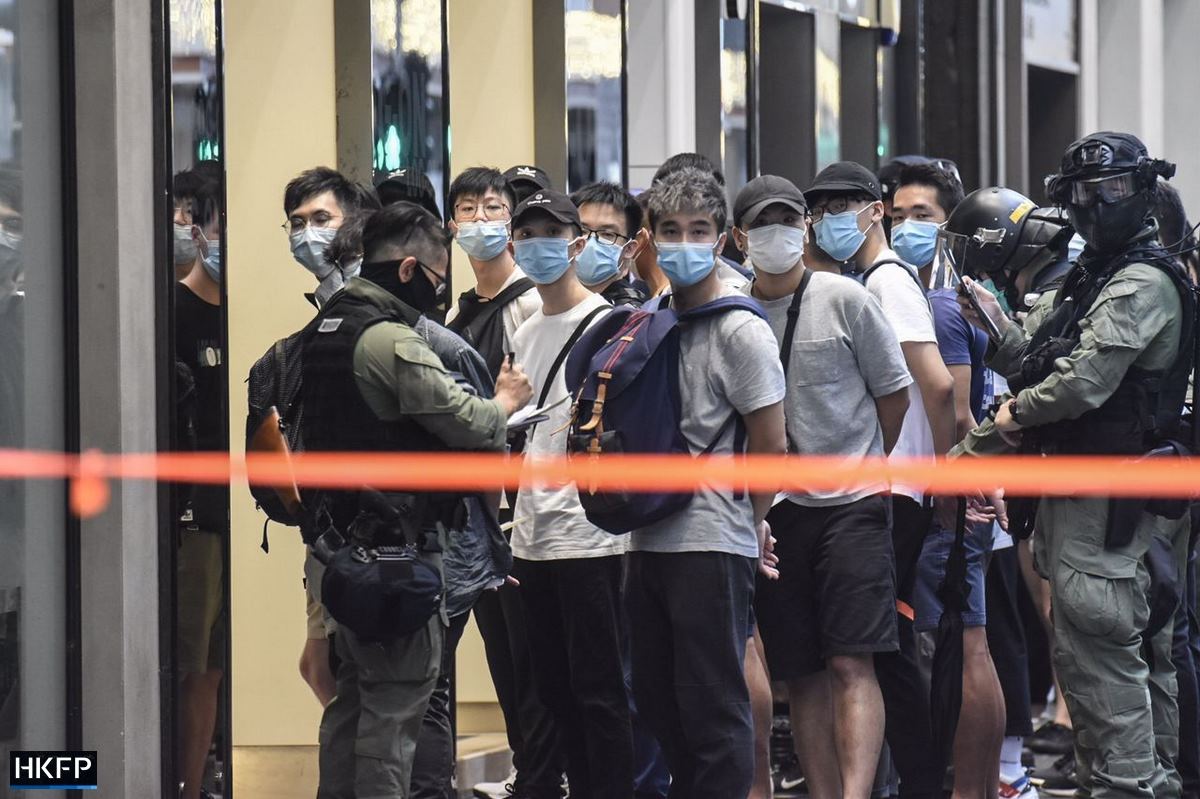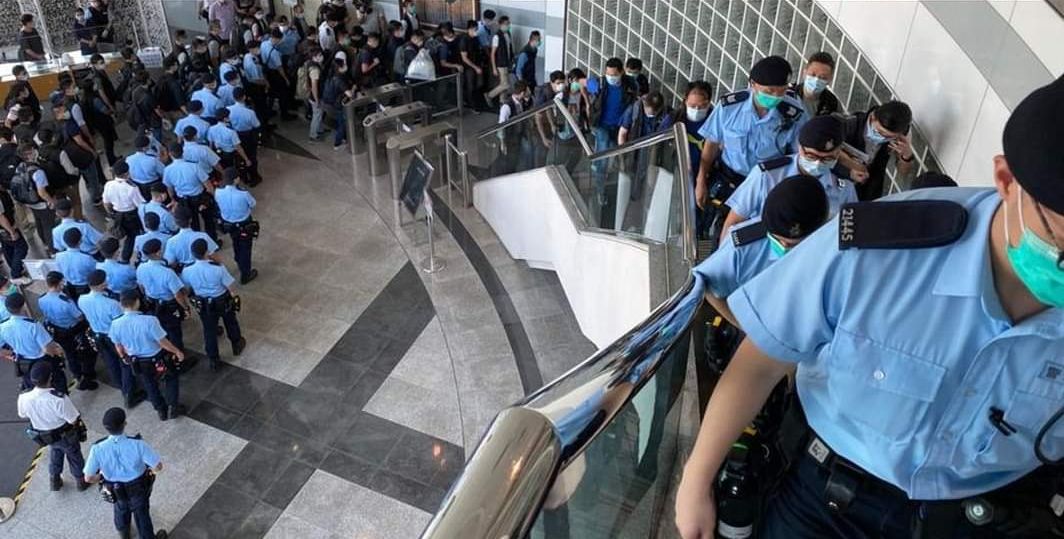The state of human rights and freedoms enjoyed in Hong Kong deteriorated under the ill-defined national security law last year, according to rights group Amnesty International Hong Kong.
“The rights to freedom of expression, peaceful assembly and association, among other human rights, were greatly stifled in Hong Kong in 2020,” its annual human rights report released on Wednesday read.

The organisation’s report concluded that Hong Kong authorities have restricted Hongkongers’ freedoms under the guise of protecting national security and controlling the spread of the Covid-19 pandemic. The two factors were “a destructive combination” for human rights in Hong Kong, the group said in a press statement.
The report said that the vaguely-defined national security law enforced last June has allowed authorities to make arbitrary arrests, including the detention of pro-democracy radio host Tam Tak-chi. Tam was not charged under the security law but has been assigned a national security law judge to hear his charges under the colonial-era sedition law.

“The chilling effect of the [security law] on Hong Kong civil society has been rapid and deeply disturbing,” the report read. It referred to at least seven political groups which disbanded immediately following the law’s enactment and the banning of popular pro-democracy slogan “Liberate Hong Kong, revolution of our Times” as “subversive” under the law.
Last June, Beijing inserted national security legislation directly into Hong Kong’s mini-constitution – bypassing the local legislature – following a year of pro-democracy protests and unrest. It criminalised subversion, secession, foreign interference and terrorist acts, which were broadly defined to include disruption to public transport and other infrastructure. The government has said the law is necessary to ensure stability and prosperity.
“While protection of ‘national security’ is in principle a legitimate ground for the restriction of many human rights, governments should not use ‘national security’ as an excuse to deny people their human rights as protected by international law and standards,” Wednesday’s report read.

It also detailed authorities’ use of pandemic control measures to restrict freedom of assembly in Hong Kong. The report referred to limitations on group gatherings which were invoked to ban all peaceful demonstrations, including the annual June 4 vigil for the Tiananmen Massacre dead, and the July 1 annual pro-democracy demonstration.
The report added that any restrictions on fundamental rights in the name of public health protection must be “necessary and proportionate.”
“Any law restricting human rights on the grounds of national security and pandemic prevention must have clear provisions and definitions to avoid abuse and excessive interpretation,” Amnesty International Hong Kong said in a press statement.
‘Unprecedented’ pressure
The report also addressed “unprecedented” pressure on the city’s academic and press freedoms.
“Press freedom and independent media institutions are increasingly under threat in Hong Kong,” the report read, adding that journalists were at risk of being arrested “when merely exercising their right of newsgathering.”

Last year, the publisher and senior executives of pro-democracy newspaper Apple Daily were arrested, while over 100 officers raided its newsrooms. Separately, a journalist has been arrested for accessing public car registration records. The report also referred to “tightening control” by the government on public broadcaster RTHK over politically-sensitive content.
Meanwhile, the report detailed increasing pressure on the city’s schools and teachers to censor political content.
“Freedom of expression enjoyed by education professionals was severely limited and their professional judgments compromised, giving way to arbitrary and politically motivated decisions of the Education Bureau to remove ‘political messages’ at schools and put teachers and students under tighter scrutiny,” it read.

The report listed content pulled from the city’s textbooks, including lessons on the “separation of powers,” the Tiananmen massacre of 1989, and civil disobedience. “These attempts demonstrated the government’s intention to increase censorship via tighter institutional oversight and expunge teaching materials that may be critical of the Hong Kong and Chinese governments,” it continued.
The NGO also raised concerns over arrests made over a peaceful pro-democracy demonstration held by graduating students at the Chinese University of Hong Kong’s campus last November, calling the move “a blatant attack on the freedoms of expression and peaceful assembly on campus in the name of ‘national security’.”

The group called on the Hong Kong government to fulfil its human rights obligations at international and local law: “The authorities should not deprive people in Hong Kong of their rights to freedom of expression, peaceful assembly and association in the name of ‘ensuring national security’ or ‘controlling the pandemic’.”
Hong Kong’s Bill of Rights Ordinance guarantees its inhabitants the freedoms enshrined in the International Covenant on Civil and Political Rights. Hong Kong officials have asserted that the new national security law does not infringe on fundamental human rights.
The report comes amid international criticism over shrinking civil liberties in Hong Kong after Beijing approved sweeping changes to its electoral system last month to ensure only people who are loyal to the Chinese Communist Party can administer the region. Central and local authorities have denied the new changes will diminish democracy and the regions’ promised freedoms and autonomy.
Support HKFP | Policies & Ethics | Error/typo? | Contact Us | Newsletter | Transparency & Annual Report | Apps
Help safeguard press freedom & keep HKFP free for all readers by supporting our team























